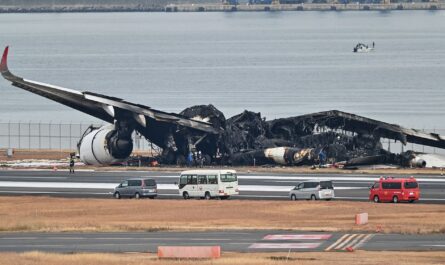In a recent clarification issued by the Inter-Services Public Relations (ISPR), Pakistan’s military spokesperson refuted claims circulating in certain media circles suggesting that Chief of Army Staff (COAS) General Asim Munir had given an interview in Brussels and commented on the Pakistan Tehreek-e-Insaf (PTI). According to the Director General ISPR, these reports are baseless, misleading, and part of a campaign aimed at spreading disinformation.
The clarification comes at a time when Pakistan is witnessing heightened political polarization, with rumors and misinformation being used as tools to influence public opinion. Given the sensitivity of the armed forces’ role in the country, the ISPR’s statement sought to set the record straight and ensure that no ambiguity remains about the Army Chief’s stance.
Background of the Rumors
The rumors emerged on social media platforms and were later picked up by some news outlets, alleging that COAS Asim Munir had been interviewed during his visit to Brussels. These reports further claimed that the Army Chief had spoken specifically about PTI and its leadership. Such news quickly gained traction, raising questions about the neutrality of the armed forces in Pakistan’s political landscape.
However, the ISPR categorically rejected these claims. The DG ISPR emphasized that the COAS had neither given any interview in Brussels nor commented on any political party, including PTI. The statement clarified that the Army Chief remains committed to his professional responsibilities and is focused on matters concerning national security, regional stability, and Pakistan’s defense strategy.

Importance of Neutrality in the Armed Forces
The Pakistani Army has repeatedly stated its resolve to stay apolitical and neutral in the country’s political affairs. This principle of neutrality is crucial for maintaining institutional credibility, especially during times of political unrest. Any suggestion that the Army Chief has taken a position in favor of or against a political party undermines this commitment.
By issuing the clarification, the ISPR reinforced the message that the armed forces are not aligned with any political faction. Instead, their priority remains safeguarding national interests, ensuring internal stability, and addressing security challenges facing the country.
Misinformation in the Digital Age
One of the most significant aspects highlighted by this incident is the growing role of misinformation and fake news in shaping narratives. In today’s digital world, false information spreads faster than ever before. Social media, while being an important tool for communication, has also become a platform where unverified claims and fabricated stories circulate without accountability.
The ISPR’s clarification underscores the importance of verifying news before sharing it. Misleading reports not only damage the reputation of institutions but also create unnecessary confusion among the public. For a country like Pakistan, where political divisions are already deep, such rumors can fuel instability and mistrust.
The Role of ISPR in Countering False Narratives
As the media wing of the Pakistan Army, ISPR plays a vital role in communicating official positions and countering propaganda. Over the years, ISPR has actively addressed misinformation campaigns both domestically and internationally. The recent statement regarding General Asim Munir is another example of the institution’s effort to ensure transparency and accuracy in the public domain.
By swiftly addressing the false reports, ISPR not only clarified the Army Chief’s position but also sent a strong message that misleading narratives will not be allowed to shape perceptions about the military’s role.

Political Sensitivity and Public Perception
The mention of PTI in the false reports is particularly noteworthy given the party’s strong political influence and current controversies. Any suggestion that the Army Chief made remarks about PTI could easily be interpreted as political bias, fueling further tensions between political forces and state institutions.
The ISPR’s categorical denial was therefore necessary to prevent such misperceptions from gaining ground. By clarifying that General Munir did not comment on PTI, the military reaffirmed its neutral stance in the political arena.
The Bigger Picture: Focus on National Security
It is important to remember that the Army Chief’s international visits, such as the one to Brussels, are focused on defense cooperation, strategic partnerships, and regional security. These high-level meetings are platforms to discuss counter-terrorism, defense collaboration, and global security concerns. The notion that such visits would be used for making political remarks is both unrealistic and damaging.
General Asim Munir’s professional commitments revolve around enhancing Pakistan’s defense capabilities and ensuring the country’s security in a challenging geopolitical environment. Political commentary has no place in such engagements, and the ISPR’s clarification reinforces this reality.
Conclusion
The ISPR’s recent statement dismissing rumors about General Asim Munir’s alleged interview in Brussels highlights the dangers of misinformation in today’s interconnected world. By reaffirming the Army Chief’s apolitical stance, the military has once again demonstrated its commitment to professionalism and national service.
In times of political polarization, such clarifications are essential to maintain institutional trust and prevent disinformation from distorting public opinion. Moving forward, it is equally important for citizens and media outlets to exercise responsibility by verifying facts before circulating news. The role of the military, as emphasized by ISPR, remains firmly rooted in safeguarding Pakistan’s national interests, not engaging in political debates.



